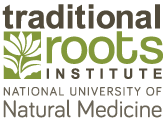Here at Traditional Roots, we embrace the opportunity to use technology to spread the herbal love. We record many of our classes and conference sessions so you can join us virtually if not always in person.
To learn more about opportunities, visit NUNM’s Continuing Education.

